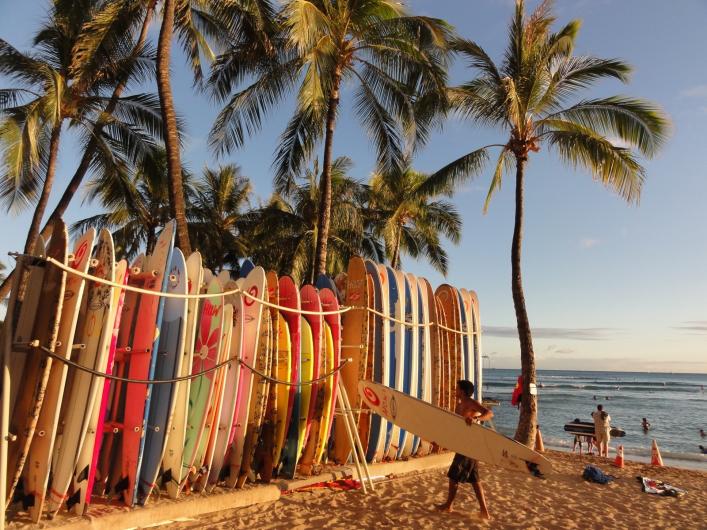/granite-web-prod/2f/79/2f79ab0eb67e4270974ccdb3b794c75d.jpeg)
/granite-web-prod/2f/79/2f79ab0eb67e4270974ccdb3b794c75d.jpeg)
The riding of waves has likely existed since humans began swimming in
the ocean. In this sense, bodysurfing is the oldest type of
wave-catching. Archaeological evidence suggests that ancient cultures of
Peru surfed on reed watercraft for fishing and recreation up to five
thousand years ago. Standing up on what is now called a surfboard is a
relatively recent innovation developed by the Polynesians. The
influences for modern surfing can be directly traced to the surfers of
pre-contact Hawaii. The art of surfing, known as heʻe nalu (literally,
wave sliding)[5] in the Hawaiian language, was recorded in his journal
by Joseph Banks aboard HMS Endeavour during the first voyage of James
Cook, during the ship's stay in Tahiti in 1769:
 '...their cheif [sic] amusement was carried on by the stern of an old
canoe, with this before them they swam out as far as the outermost
breach, then one or two would get into it and opposing the blunt end to
the breaking wave were hurried in with incredible swiftness. Sometimes
they were carried almost ashore...'[6]
'...their cheif [sic] amusement was carried on by the stern of an old
canoe, with this before them they swam out as far as the outermost
breach, then one or two would get into it and opposing the blunt end to
the breaking wave were hurried in with incredible swiftness. Sometimes
they were carried almost ashore...'[6]
Find out more on Wikipedia